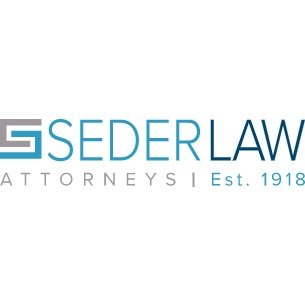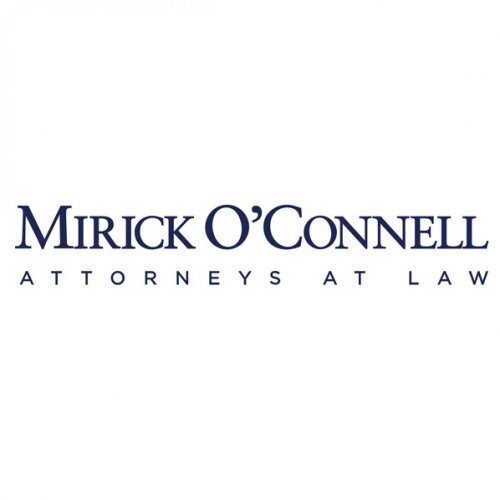Best Corporate Governance Lawyers in Massachusetts
Share your needs with us, get contacted by law firms.
Free. Takes 2 min.
Or refine your search by selecting a city:
List of the best lawyers in Massachusetts, United States
About Corporate Governance Law in Massachusetts, United States
Corporate governance refers to the system of rules, practices, and processes by which a company is directed and controlled. In Massachusetts, corporate governance law sets the framework for how corporate entities conduct business, manage their affairs, protect shareholders’ interests, and fulfill legal responsibilities. Both Massachusetts statutes and federal regulations provide guidance for corporate compliance, fiduciary duties, shareholder rights, and board governance. Whether you are an entrepreneur forming a new company or an officer or director managing an established corporation, understanding corporate governance is essential for legal compliance and sustainable business operation.
Why You May Need a Lawyer
Seeking legal advice in corporate governance can be critical in several common situations, including:
- Forming or dissolving a corporation in Massachusetts
- Drafting or amending bylaws, articles of incorporation, or corporate policies
- Handling conflicts of interest, board disputes, or breaches of fiduciary duty
- Addressing shareholder rights, voting issues, and derivative actions
- Navigating mergers, acquisitions, or other structural changes
- Ensuring compliance with local and federal regulations (for example, SEC regulations for publicly traded companies)
- Implementing corporate record-keeping and reporting requirements
- Defending against government investigations or lawsuits involving corporate mismanagement
- Advising on executive compensation and ethical business practices
A lawyer who understands Massachusetts corporate governance can help protect your organization from legal risk, maximize efficiency, and ensure long-term credibility.
Local Laws Overview
Massachusetts corporate governance is governed primarily by the Massachusetts General Laws Chapter 156D, which is also known as the Massachusetts Business Corporation Act. This statute sets forth requirements for:
- Incorporation process and necessary corporate documents
- Board of directors’ structure, composition, and duties
- Standards of conduct for officers and directors, including fiduciary responsibilities
- Procedures for shareholder and board meetings
- Shareholder rights to inspect records, vote, and bring legal actions
- Dissolution procedures and requirements
- Annual report filings with the Massachusetts Secretary of the Commonwealth
- Special considerations for closely held corporations, nonprofit organizations, and public companies operating in Massachusetts
In addition to state law, corporations operating in Massachusetts must also comply with federal laws such as the Sarbanes-Oxley Act if they are publicly traded.
Frequently Asked Questions
What is the role of the board of directors in a Massachusetts corporation?
The board of directors oversees the management of the corporation, establishes major policies, appoints executive officers, and represents shareholders’ interests under Massachusetts law.
What fiduciary duties do directors and officers owe in Massachusetts?
Directors and officers owe the duties of care and loyalty to the corporation. This means acting in good faith, with reasonable care, and always in the corporation’s best interest.
What are the basic requirements for incorporating a business in Massachusetts?
A corporation needs to file articles of organization with the Secretary of the Commonwealth, appoint at least one director, adopt bylaws, and issue shares to initial shareholders.
Are annual meetings required for Massachusetts corporations?
Yes, Massachusetts law requires corporations to hold at least one annual meeting of shareholders to elect directors and attend to other necessary business.
What are the shareholder rights in Massachusetts corporations?
Shareholders have the right to vote on major corporate decisions, inspect corporate records, receive information, and bring lawsuits under certain circumstances.
Can officers or directors be held personally liable for corporate actions?
While corporate structure offers liability protection, officers and directors can be held personally liable for breaches of fiduciary duty, fraud, or illegal acts.
What kind of records must a Massachusetts corporation maintain?
Massachusetts corporations must keep articles of organization, bylaws, minutes of meetings, records of actions, current shareholder and director lists, and financial records.
How are disputes among shareholders or between shareholders and directors resolved?
Many disputes can be resolved through negotiation or mediation, but some may require formal legal action in Massachusetts state courts.
Are there special requirements for nonprofit corporate governance in Massachusetts?
Nonprofits must comply with additional regulations, including special rules for board composition, conflict of interest policies, and annual filings with the Attorney General’s Office.
What happens if a corporation fails to comply with Massachusetts corporate governance law?
Non-compliance can lead to fines, administrative dissolution, and potential personal liability for officers or directors in cases of willful breach or fraud.
Additional Resources
Several organizations and governmental bodies can help guide you on corporate governance matters in Massachusetts:
- Massachusetts Secretary of the Commonwealth, Corporations Division
- Massachusetts Attorney General’s Office (for nonprofits)
- Small Business Administration - Massachusetts District Office
- American Bar Association - Business Law Section
- Massachusetts Bar Association - Business Law Section
- Greater Boston Chamber of Commerce (for educational events and resources)
Next Steps
If you need legal assistance with corporate governance in Massachusetts, consider the following steps:
- Gather your corporate documents, meeting minutes, and business records
- Identify the specific issue or question you are facing
- Contact a qualified business attorney who practices in Massachusetts
- Request a consultation to discuss your needs and review your options
- Stay informed of local regulatory changes and best practices
Taking these proactive steps will help your organization remain compliant and make informed decisions that protect your business’s future.
Lawzana helps you find the best lawyers and law firms in Massachusetts through a curated and pre-screened list of qualified legal professionals. Our platform offers rankings and detailed profiles of attorneys and law firms, allowing you to compare based on practice areas, including Corporate Governance, experience, and client feedback.
Each profile includes a description of the firm's areas of practice, client reviews, team members and partners, year of establishment, spoken languages, office locations, contact information, social media presence, and any published articles or resources. Most firms on our platform speak English and are experienced in both local and international legal matters.
Get a quote from top-rated law firms in Massachusetts, United States — quickly, securely, and without unnecessary hassle.
Disclaimer:
The information provided on this page is for general informational purposes only and does not constitute legal advice. While we strive to ensure the accuracy and relevance of the content, legal information may change over time, and interpretations of the law can vary. You should always consult with a qualified legal professional for advice specific to your situation.
We disclaim all liability for actions taken or not taken based on the content of this page. If you believe any information is incorrect or outdated, please contact us, and we will review and update it where appropriate.
Browse corporate governance law firms by city in Massachusetts
Refine your search by selecting a city.
















